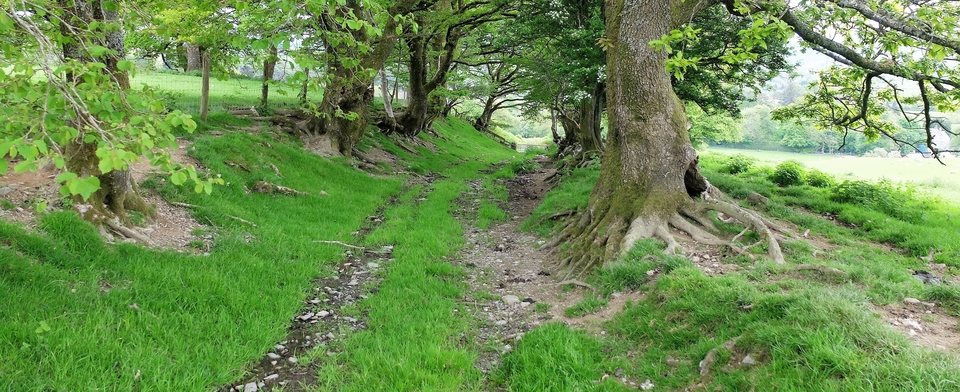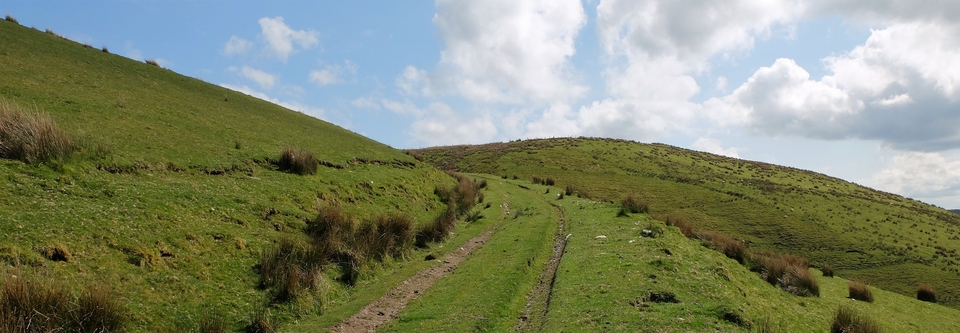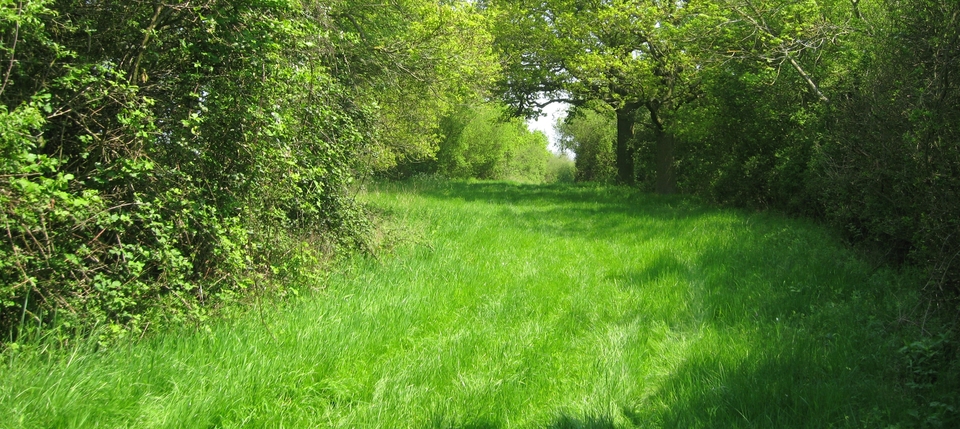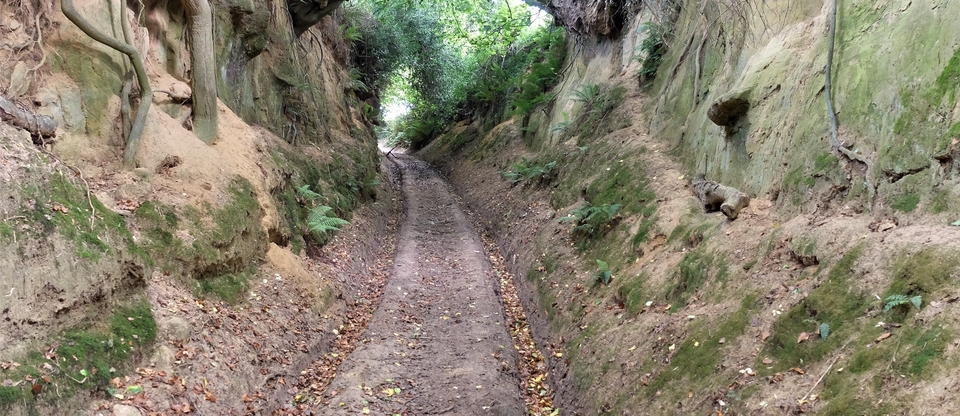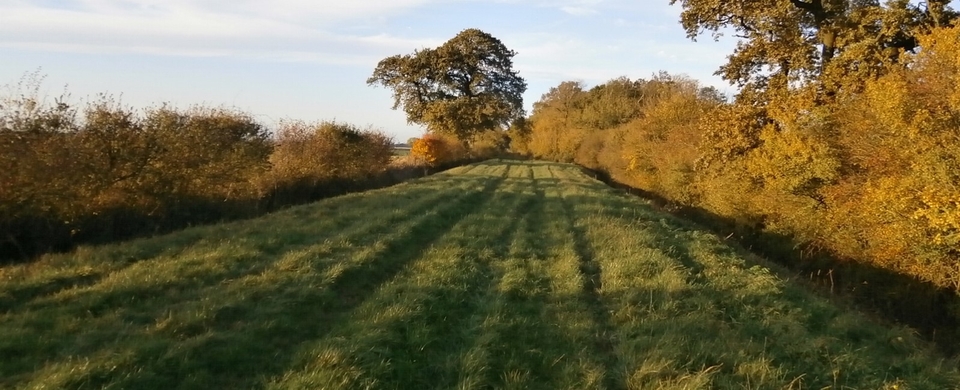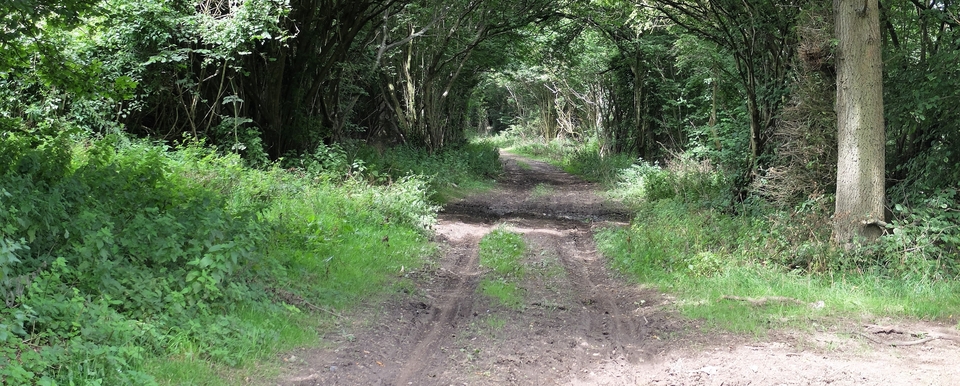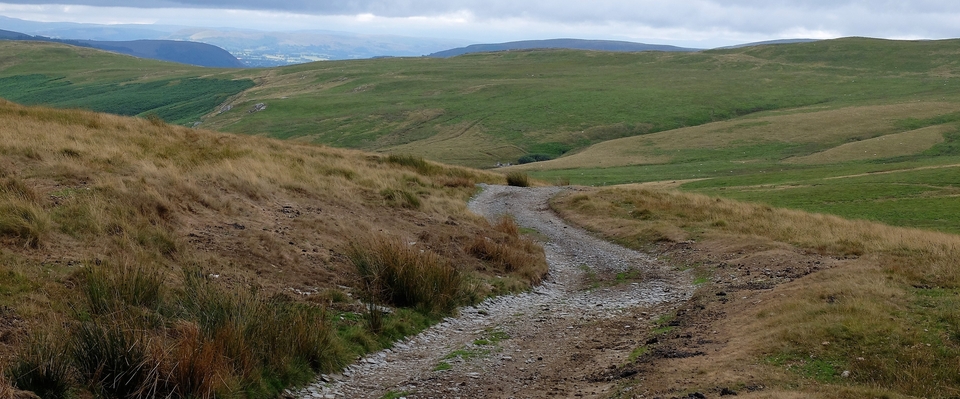Who Were They?
And who were the drovers?
One Welsh writer - sorry, forgotten his name - paints a picture of a Welsh boy, half-starved on a poor upland farm, who, hearing the jingling of a pony's harness, looks up to see a well-fed, confident man on his well-fed pony coming over the hill; he has a smart coat, new boots and (doubtless) money in his pockets; he calls out ‘Hello, Boy. Where's your father?'
A few minutes later the boy is sitting in the kitchen. He looks at his gaunt, overworked father in worn-out clothes at one end of the table; he sees the sleek stranger at the other end, talking about the latest news from London, the latest fashions, the excitement, the meat and drink – and decides!
Maybe the boy will drive cattle for only five or ten years before settling down on his father's farm – but he has to give it a try… The itinerant lifestyle must have been highly appealing to a young man with a yearning to see the outside world.
The drove he joins may include three generations at work: the elder men will be teaching their sons' generation while the sons guide the youngsters. The bowler hat that drovers wore with pride was the sign of a trade, and this trade needed a long, hard apprenticeship. The routes must be learned by heart without signpost or map; water must be found without fail or the herd is lost. Ways of using dogs to cajole reluctant, cussed beasts to go in the desired direction, of curing bloat in sheep, of survival in the open...so many mysteries to be mastered. But what adventure!
(Picture #1 is of a drover's boy, taken around 1900 at Canons Ashby, home of the Dryden family. Alice Dryden bribed the boy to pose for the photo; the bribe was an apple: you can it see clasped tightly in his right hand.)
There is a deity in charge of each herd: the porthmon or topsman, who rides ahead on a pony, returns to direct the drove to the next available inn, handles the money, speaks English as well as Welsh...no one disobeys Him! He is the man with the expertise to get the cattle to market on time and guarantee wages; he is a man whom everyone trusts. (He probably joined the drove as a youngster himself...)
If the boy stays in the trade, he may become a cattle-dealer, hiring his own men and boys. Some of the former would have been 'men of the road' who liked the itinerant life. At the end of the trail was London, capital of the known world with all the temptations of Eden. (The men in #2 seem to have sampled the delights of London a few times too often. But in reality they are living a hard existence, which certainly shows.)
One more thing: life was tough for drovers in London if they lost their way and didn't know much English. They could be hoodwinked and robbed by numerous sorts of people. (There are many stories of prostitutes robbing drovers, some ending up in court.) But one of the oddest is told by John Lloyd: two drovers had put up at the Lock & Key near Smithfield Market and went out for a stroll. They lost their way, wandered miserably all night long until they mustered courage to ask a passer-by the way to Bailey Vicar, the largest farm in their native parish. By good fortune they had accosted a Welshman, so got safely back to the Lock & Key.
ADDED March 2023 Just realised: forgot to put in my favourite Drover, not just because I know his "name" or because he's the only one I know who's been immortalised in oils, but because of an unforgettable conversation I had during one of the talks I gave in North Marston (Bucks) in 2014.
I had been allowed to take the picture (#3) thanks to the generosity of Joy and Greg Georgeson of Great Horwood. So, off I went to North Marston, said my introductions and came to "Old Glory", as the gentleman was known as, who used to pick up beasts from the farm gates on the way to Aylesbury Market. As soon as I had put the slide up, there was a short gasp from a lady in the back row. I asked if anything was wrong and received the unlikeliest answer imaginable: "I was his bus driver," she said.
After the gasps and the laughter had subsided I prompted her to say more and she told us that his first remark on entering the bus would always be 'Have you got a light, Miss?' As she smoked too, that was easy. I can't remember this clearly, but I think she said he never had any money, so the ride was free. I asked where he lived: she said 'In a wooden shack between Oving and Whitchurch. And he stank,' she added.
But, stink or not, this is a picture of an old-fashioned countryman. I may have mixed up some of the details with another drover called 'Glory' - no relation - or his name may have been just 'Glory'. But he will always remain one of the men I wished I could have met, who kept the droving tradition going right into the second half of the 20th Century. Bless him for that.
